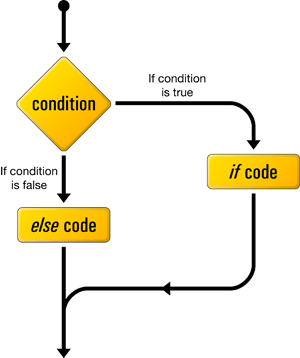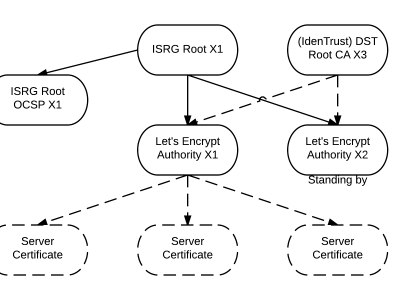Linux中國
Shell 腳本基礎 – 使用 if 語句進行條件檢測

if 語句的語法:
if [ 判斷條件 ]
then
command1
command2
……..
last_command
fi
Example:
#!/bin/bash
number=150
if [ $number -eq 150 ]
then
echo "Number is 150"
fi
if-else 語句:
除了標準的 if 語句之外,我們還可以加入 else 代碼塊來擴展 if 語句。這麼做的主要目的是:如果 if 條件為真,執行 if 語句里的代碼塊,如果 if 條件為假,執行 else 語句里的代碼塊。
語法:
if [ 判斷條件 ]
then
command1
command2
……..
last_command
else
command1
command2
……..
last_command
fi
Example:
#!/bin/bash
number=150
if [ $number -gt 250 ]
then
echo "Number is greater"
else
echo "Number is smaller"
fi
If..elif..else..fi 語句 (簡寫的 else if)
Bourne Shell 的 if 語句語法中,else 語句里的代碼塊會在 if 條件為假時執行。我們還可以將 if 語句嵌套到一起,來實現多重條件的檢測。我們可以使用 elif 語句(else if 的縮寫)來構建多重條件的檢測。
語法 :
if [ 判斷條件1 ]
then
command1
command2
……..
last_command
elif [ 判斷條件2 ]
then
command1
command2
……..
last_command
else
command1
command2
……..
last_command
fi
Example :
#!/bin/bash
number=150
if [ $number -gt 300 ]
then
echo "Number is greater"
elif [ $number -lt 300 ]
then
echo "Number is Smaller"
else
echo "Number is equal to actual value"
fi
多重 if 語句 :
If 和 else 語句可以在一個 bash 腳本里相互嵌套。關鍵詞 「fi」 表示裡層 if 語句的結束,所有 if 語句必須使用 關鍵詞 「fi」 來結束。
基本 if 語句的嵌套語法:
if [ 判斷條件1 ]
then
command1
command2
……..
last_command
else
if [ 判斷條件2 ]
then
command1
command2
……..
last_command
else
command1
command2
……..
last_command
fi
fi
Example:
#!/bin/bash
number=150
if [ $number -eq 150 ]
then
echo "Number is 150"
else
if [ $number -gt 150 ]
then
echo "Number is greater"
else
echo "'Number is smaller"
fi
fi
via: http://www.linuxtechi.com/shell-scripting-checking-conditions-with-if/
作者:Pradeep Kumar 譯者:ThomazL 校對:wxy
本文轉載來自 Linux 中國: https://github.com/Linux-CN/archive
對這篇文章感覺如何?
太棒了
0
不錯
0
愛死了
0
不太好
0
感覺很糟
0
More in:Linux中國
捐贈 Let's Encrypt,共建安全的互聯網
隨著 Mozilla、蘋果和谷歌對沃通和 StartCom 這兩家 CA 公司處罰落定,很多使用這兩家 CA 所簽發證書的網站紛紛尋求新的證書籤發商。有一個非盈利組織可以為大家提供了免費、可靠和安全的 SSL 證書服務,這就是 Let's Encrypt 項目。現在,它需要您的幫助
Let's Encrypt 正式發布,已經保護 380 萬個域名
由於 Let's Encrypt 讓安裝 X.509 TLS 證書變得非常簡單,所以這個數量增長迅猛。
關於Linux防火牆iptables的面試問答
Nishita Agarwal是Tecmint的用戶,她將分享關於她剛剛經歷的一家公司(印度的一家私人公司Pune)的面試經驗。在面試中她被問及許多不同的問題,但她是iptables方面的專家,因此她想分享這些關於iptables的問題和相應的答案給那些以後可能會進行相關面試的人。 所有的問題和相應的答案都基於Nishita Agarwal的記憶並經過了重寫。 嗨,朋友!我叫Nishita Agarwal。我已經取得了理學學士學位,我的專業集中在UNIX和它的變種(BSD,Linux)。它們一直深深的吸引著我。我在存儲方面有1年多的經驗。我正在尋求職業上的變化,並將供職於印度的P
Lets Encrypt 已被所有主流瀏覽器所信任
旨在讓每個網站都能使用 HTTPS 加密的非贏利組織 Lets Encrypt 已經得了 IdenTrust的交叉簽名,這意味著其證書現在已經可以被所有主流的瀏覽器所信任。從這個裡程碑事件開始,訪問者訪問使用了Lets Encrypt 證書的網站不再需要特別配置就可以得到 HTTPS 安全保護了。 Lets Encrypt 的兩個中級證書 ...






















